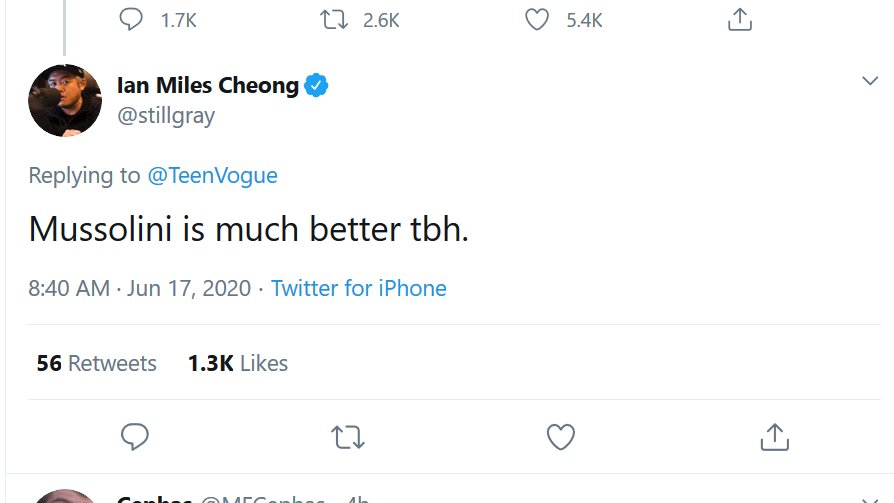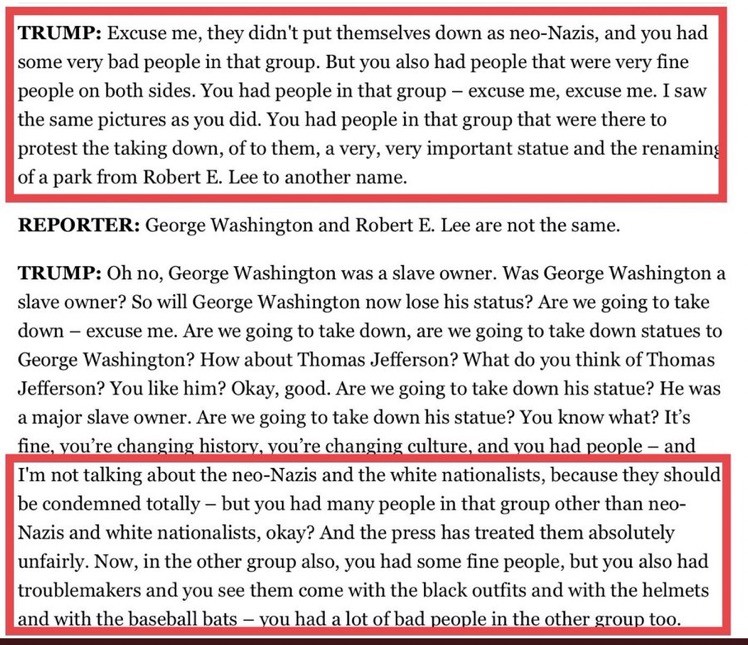aq_ua wrote:BallSacBounce wrote:HarthorneWingo wrote:There is some reason to believe that originalism has its bases found in the purposes of the document. "Living constitutionalism" is the counter theory to interpreting it. This has been The Great Debate in the law for a long time.
If you're interesting in reading more, as I am, I found a recent (2019) law review article on the topic from Northwestern Law School. I'm going to read it tomorrow.
https://scholarlycommons.law.northwestern.edu/cgi/viewcontent.cgi?article=1376&context=nulr
Originalism is that the Constitution should be interpreted as it was understood and intended to be understood at the time.
If it's deemed to be lacking in some respects update it with current legislation not the whims of 9 judges. Let the people vote on it.
I’m still only in the early part of the document that Wingo posted, but it seems there’s even debate about what each side of the debate represents as the argument and the definition of the terms. Let’s revisit after we’ve digested this.
Wingo really **** us with this homework. Deep dive into what people call "originalism" and living constitutionalism."
He makes an excellent point early on about properly defining terms and shifting definitions. We all speak past each other often in political debates as a result.
I find this very interesting:
It seems
likely that there is a gap between originalist constitutional theory as
articulated by legal scholars and the use of the word “originalism” by
politicians and pundits. The gap between judges and scholars may be
narrower, but it is significant.39 If the label “originalism” is applied to the
actual decisional practice of self-identified judicial originalists, the content
of the theory is likely to diverge from the versions of originalism advocated
by legal scholars. An example of this divergence is seen in the context of
precedent, where judicial originalists are likely to place greater emphasis on
precedent, and constitutional theorists are likely to place more emphasis on
the original meaning of the constitutional text.
The relationship between the realms of originalist discourse are
complex. Many of the invocations of the word “originalism” in political
discourse are mere rhetorical flourishes, without any theoretical content at
all, but some politicians have a sophisticated understanding of contemporary
originalist constitutional theory—as illustrated by Senator Mike Lee’s
questioning of then-Judge Brett Kavanaugh during confirmation hearings.40
Some of the uses of “originalism” display very little awareness of originalist
scholarship, but some judicial originalists, for example, Justice Scalia,
Associate Chief Justice Thomas Lee of the Utah Supreme Court, and Judge
Amy Coney Barrett of the United States Court of Appeals for the Seventh
Circuit, display a sophisticated command of originalist theory and participate
in scholarly debates.
The terminological and conceptual discussion in this Essay is aimed
primarily at scholarly discourse and to those aspects of judicial practice and
political discourse that interact with the academic debates. It should go
without saying that (at least in the short run) the proposals offered here are
unlikely to affect the use of the word “originalism” in rough-and-tumble
politics or judicial opinions authored by judges who are mostly (or even
completely) unfamiliar with the academic debates.
I loved Scalia. So I guess I come down on the academic originalism as interpreted by him and another one he brings up and relevant to the right now Amy Coney Barrett. I love the reasonings Clarence Thomas has written as well. I'd love to know what key ways if any he differs from Scalia in how he reads the constitution. Maybe Wingo can weigh in.
I like this passage, I want the applications of originalism to be ideologically neutral, and I believe that originalism does or
should at least lead to a mix of liberal, progressive, conservative, and libertarian results. I want politics out.
That's what legislatures are for.
For example, in Bradwell v. Illinois,97 the Supreme Court upheld Myra
Bradwell’s exclusion from the Illinois bar on the basis of gender. I have
argued that Bradwell v. Illinois was inconsistent with the original public
meaning of the Privileges or Immunities Clause because the right to pursue
a lawful occupation is one of the basic rights protected by the Clause.
However, Bradwell could have been understood as consistent with the
Clause by Justices who believed that women were intellectually incapable of
functioning as competent lawyers. The opposite result would be required
given true beliefs about women’s intellectual capacities.98 Fixed original
public meaning can give rise to different outcomes given changing beliefs
about facts. The Constraint Principle does not require constitutional actors
to adhere to false factual beliefs held by the drafters, Framers, ratifiers, or
the public.
Consider the following proposal for theorizing this intuitive reaction,
using Bernard Williams’s notion of a “thick moral concept”100 in which
descriptive and evaluative content are entwined. Similarly, it is possible that
some critics of originalism believe that originalism is a thick ideological
concept. The idea would be that the concept originalism combines
ideological and descriptive-theoretical elements. To put it more plainly,
originalism necessarily involves right-wing ideology—if it is not
conservative, it is not originalism. Similarly, one might think that living
constitutionalism is inherently liberal or progressive.
Many originalists disagree with this understanding of “originalism” as
that term operates in the realm of scholarly discourse. Quite obviously,
political progressives who are also originalists do not believe that their own
views are conceptually incoherent. Moreover, my impression is that most
conservatives and libertarian originalists believe that originalism is
ideologically neutral, and that originalism leads to a mix of liberal,
progressive, conservative, and libertarian results.
For example, the original
public meaning of the Privileges or Immunities Clause may support gender
equality rights (as discussed above).101 Originalism is arguably inconsistent
with sovereign immunity doctrines that are viewed as conservative.102
Moreover, the doctrine of birthright citizenship is supported by the original
public meaning of the Citizenship Clause of Section One of the Fourteenth
Amendment.103 And originalism likely leads to conservative results as well:
for example, the original meaning of the Commerce Clause likely leads to a
restrictive understanding of national legislative power.10
Well put conclusion:
CONCLUSION
Words and concepts matter, and not because conceptual clarity is more
important than normative substance. In fact, quite the opposite is true. Words
and concepts matter because conceptual clarity brings normative substance
to the fore. The most important normative issues in the great debate arise
from the originalist case for the Constraint Principle and the living
constitutionalist arguments for its rejection. These issues are many and
varied, in large part because there are so many different forms of living
constitutionalism. Making progress on the important questions of political
morality raised by the great debate between originalism and living
constitutionalism is difficult, even if we clearly understand the conceptual
structure of the debate. But if the meaning of “originalism” and “living
constitutionalism” is unstable or obscure, it seems likely that progress will
be all but impossible.
So, readers of this board, where do you fall in the following list and why?
I'm a public meaning originalist. The constitution should be interpreted by the meaning it had at the time. If you want to change the constitution there is a built-in method for that with certain standards and it involves the legislature not judges willy nilly style
re-imagining things as they go along. That's just chaos and ultimately the destruction of our republic if the meaning of the core of our laws change with the wind.
TABLE 3: THE CONCEPTUAL LANDSCAPE
Originalism
Public Meaning
Intentionalism
Original Methods
Original Law
Hybrid Theories
Living Originalism
Constitutional Compromise
Original Law Originalism
Living Constitutionalism
Constitutional Pluralism
Common Law Constitutionalism
Moral Readings
Super-Legislature
Popular Constitutionalism
Extranational Constitutionalism
Multiple Meanings
Thayerian Deference
Constitutional Antitheory
Constitutional Rejectionism
Great stuff Wingo!























